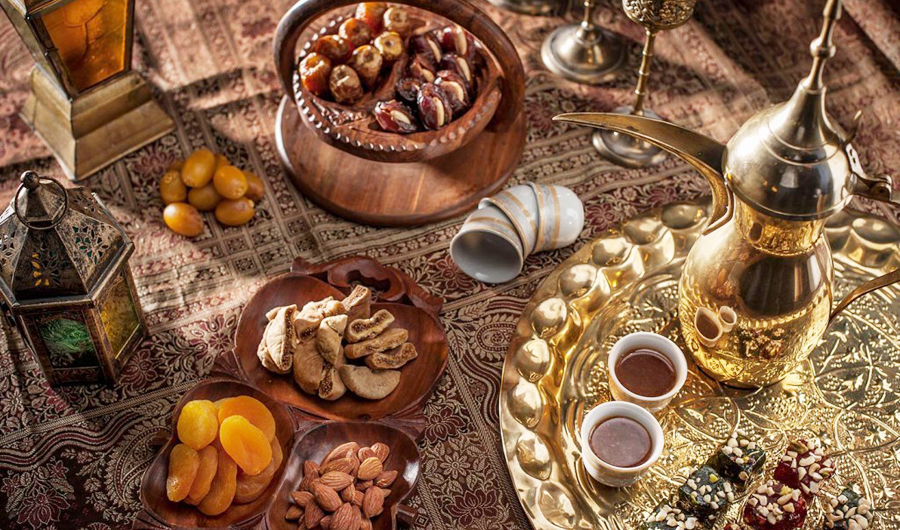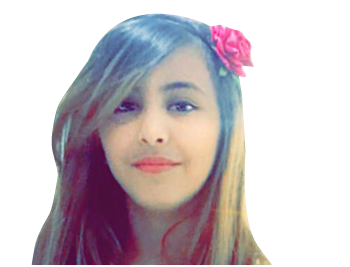RIYADH: As many Muslims around the world eagerly await Eid Al-Fitr to celebrate with family and loved ones, Saudis have shared their annual routines on the festive occasion, which for many, are the best part of the whole celebration.
“I wait eagerly for Eid, and I always try a month before to go to the public and popular markets with my sons and daughters before the crowds to prepare for the occasion,” Husain Al-Anazi, a human resources operations supervisor, told Arab News. He buys whatever his family needs such as clothes, supplies and sweets.
On the Eid day, Al-Anazi goes to the mosque, where he performs the Eid prayer, and then returns home “I return to the parents, brothers and children. I greet my mother, sisters and children. Then I go to greet the elderly in their homes, especially my uncles, aunts and some of the elderly relatives,” he added.
After completing the morning tour, he returns home at noon to take a nap until the afternoon to catch up on sleep, since he is used to staying up late during Ramadan. He then goes to the majlis (sitting room for guests) in the afternoon and prepares tea and coffee for visitors.
In the evening, Al-Anazi goes to the meeting place of his relatives, where a special dinner for the family is held in either the house of the eldest relative or a separate rented location. Once the dinner wraps up, he goes to his friends on a break to greet them and play cards.
In the following days, he travels with friends to any place they decide to visit.
My favorite food during Eid is mansaf, a traditional Arab dish made of lamb cooked in a sauce of fermented dried yogurt, and served with rice.
Asmhan Al-Fuhaiqi
As for Bandar Al-Ghayeb, a security worker at the Saudi Electricity Co., he rarely spends the whole Eid period with his family and relatives, as he works on a shift basis at the company.
He instead visits friends in the neighborhood, who prepare Eid meals (mostly grilled foods). “We don’t eat too much. We eat in a symbolic way, as if we are tasting food.”
Al-Ghayeb said that he also visits some relatives and other friends on the same day after taking a nap. Although he is usually physically exhausted, he feels psychologically comfortable, as it is a day where he is able to meet many people, including friends who he has not seen for years.
Al-Ghayeb is also keen to preserve the habit of “eidiya” every year, where children are gifted money by older members of the family.
The best moments of Eid for Saudi housewife Asmhan Al-Fuhaiqi are the morning of the first day, especially when she starts to put on new clothes.
“Performing Eid prayers has a special feeling. Then we meet together as family members at my father’s house, where we start distributing sweets to the guests,” she told Arab News.
Al-Fuhaiqi added the spirit of Eid shines through when groups begin to light fireworks in celebration.
“During Eid, I would be busy buying supplies, including clothes and accessories, and since I live in the town of Tayma, I cannot get everything I need, so I go with my family to the city of Tabuk (110 km away), which is the closest city to us” she said.
I go to greet the elderly in their homes, especially my uncles, aunts and some of the elderly relatives.
Husain Al-Anazi
She added that one of the most difficult things to buy during Eid is clothing, as she has to ensure that the size fits so that she does not go all the way back to Tabuk.
On the night before Eid, she makes sweets and puts them in the reception room before dawn, and perfumes the house with incense and oud.
In the past, Al-Fuhaiqi was keen to go to the prayer hall next to the city, which feels “beautifully different,” however, the situation changed after the coronavirus disease (COVID-19) outbreak, and she instead visits the nearby mosque.
The family then begins to receive guests in their home, distributing gifts to the children and supervising the fireworks. “Although it is risky, I feel that fireworks give a wonderful atmosphere for Eid, so I make sure that I am the one who lights the fireworks myself, not the children.”

I will be very happy during Eid, because we visit many people, and many also visit us in a short period of time.
Ruaa Rashid
She said that her favorite food during Eid is mansaf, a traditional Arab dish made of lamb cooked in a sauce of fermented dried yogurt, and served with rice or bulgur.
Saudi child Ruaa Radhi told Arab News that her mother bought her a dress and beautiful shoes a few days ago for Eid, and bought enough fireworks from the market for her and her brothers.
“On the first day of Eid Al-Fitr, we will meet with my grandmother at her house in the presence of my aunts who live in other cities, where we will have dinner together, which is a cooked lamb that my mother and aunts cook,” she said.
Radhi’s maternal uncles usually gift her toys and sweets for Eid every year. “They usually give us light footballs and balloons. Indeed, I will be very happy during Eid, because we visit many people, and many also visit us in a short period of time.”
Nayef Al-Moaini, a Saudi engineer at Ma’aden, said that, for him, the celebration of Eid starts the night before, when preparing the house is one of the most important parts of the annual celebration.
“Celebration of Eid Al-Fitr often includes holding banquets for several days to celebrate the visitors, including our relatives coming from outside the city,” he added.
The second day of Eid is a fixed day for Al-Moaini’s family feast, which includes his uncles, their children and his neighbors.



































